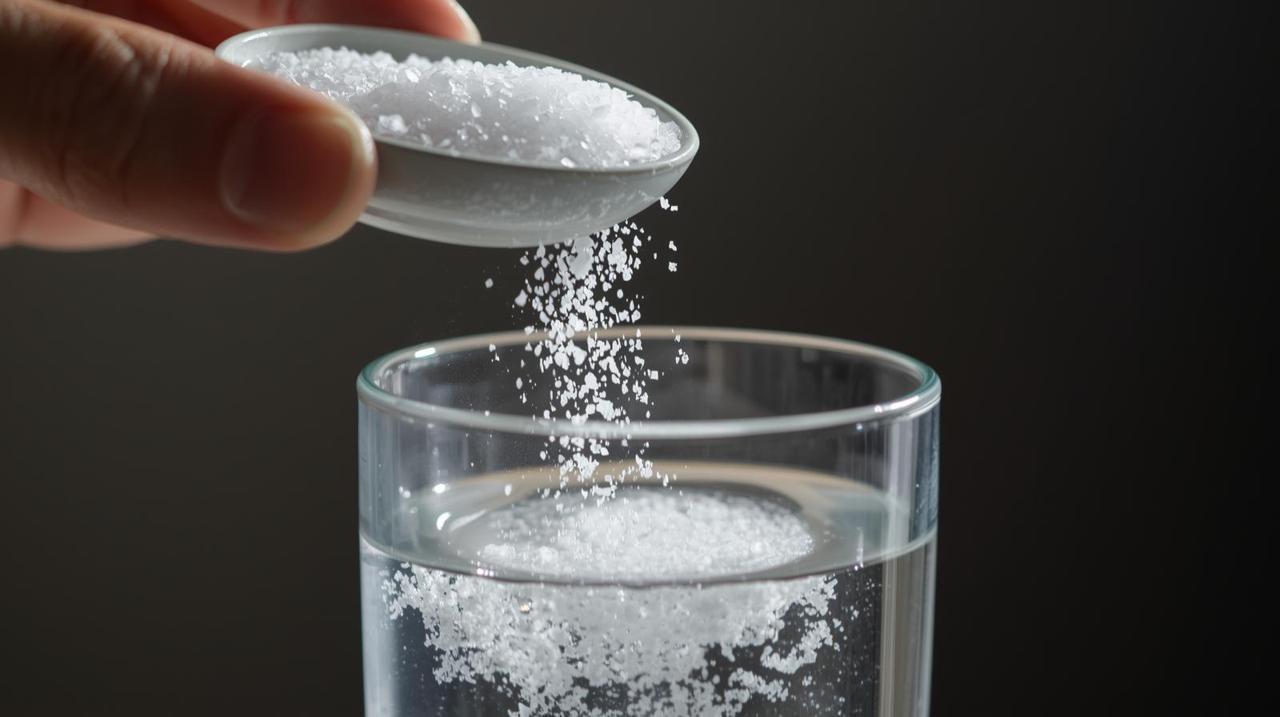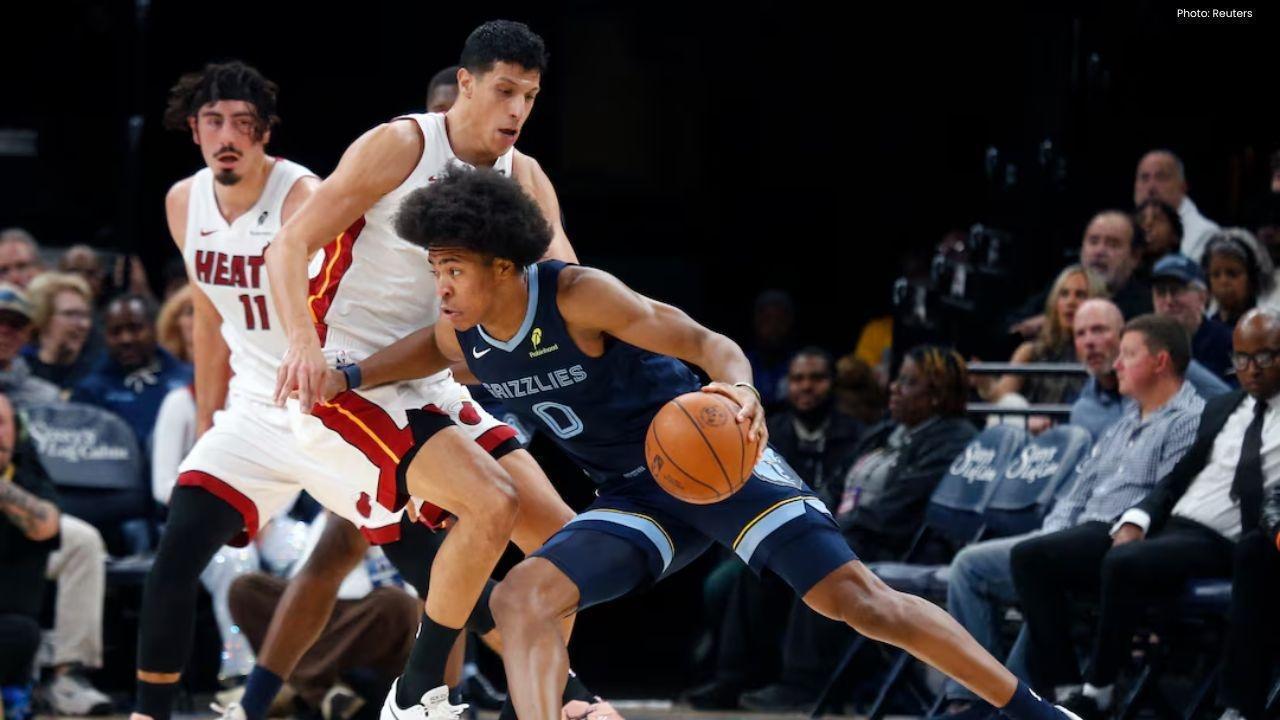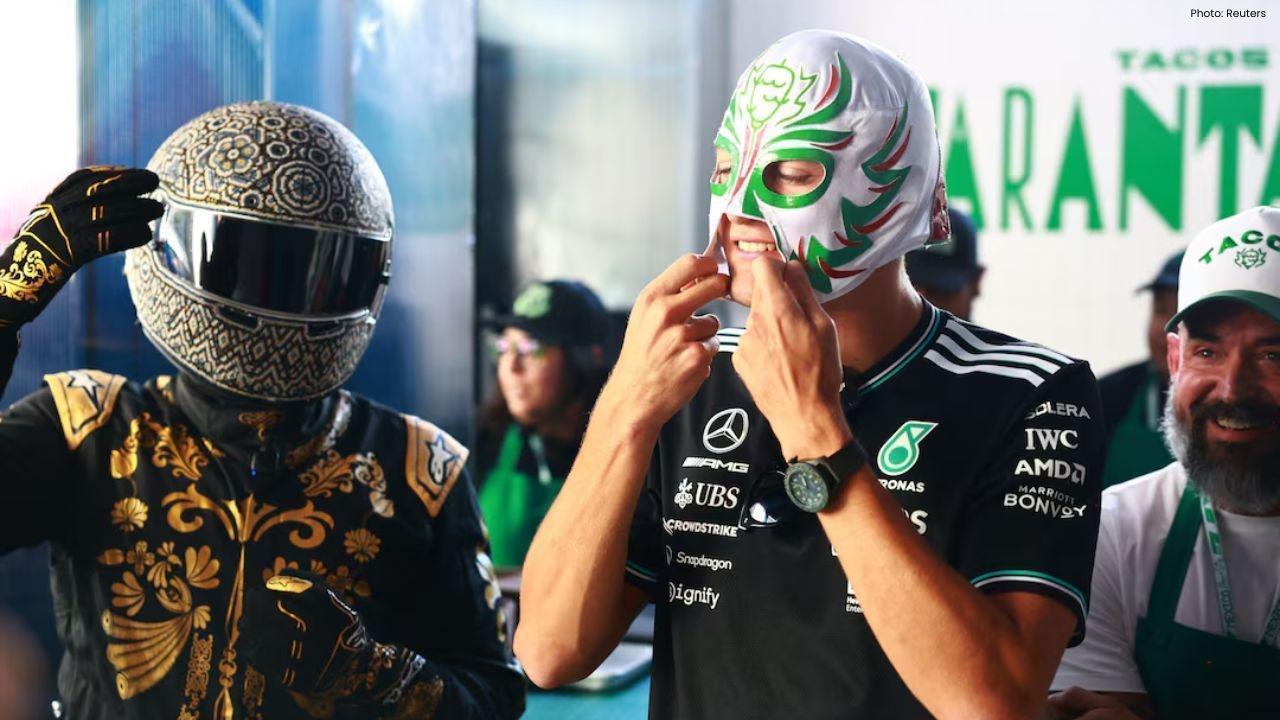
Join 10k+ people to get notified about new posts, news and tips.
Do not worry we don't spam!

Post by : Samjeet Ariff
When it comes to staying hydrated, most of us immediately think of drinking more water. But what if the secret to better hydration isn’t just about how much water you drink — but what’s in that water? Surprisingly, adding a pinch of salt could be the missing piece your body needs to stay properly hydrated.
Yes, you read that right. While salt often gets a bad reputation for contributing to high blood pressure or bloating, in moderation, it plays a crucial role in maintaining hydration levels, energy, and even brain function. Let’s explore why electrolytes like sodium are vital for your body — and how adding the right amount of salt can help you stay hydrated longer and feel better overall.
Hydration isn’t just about water intake — it’s about how well your body retains and uses that water. Every cell in your body needs fluids to function, but water alone isn’t always enough.
When you sweat, exercise, or even breathe, your body loses both water and electrolytes — minerals like sodium, potassium, magnesium, and chloride. These electrolytes help regulate nerve signals, muscle contractions, and fluid balance.
If you replace only the water and not the electrolytes, your body can become out of balance, leading to hyponatremia (low sodium levels), which can cause fatigue, confusion, or even dizziness.
That’s why proper hydration means replenishing both water and electrolytes — not just drinking gallons of plain water.
Salt (sodium chloride) is your body’s primary electrolyte. Sodium helps maintain the osmotic balance of fluids in and out of cells — meaning it keeps the right amount of water inside your tissues.
Here’s how salt improves hydration:
It helps your body absorb water more effectively.
It prevents excessive water loss through sweat or urine.
It balances fluid levels between blood and tissues.
It supports muscle and nerve function during workouts or hot weather.
Without enough sodium, water passes through your body quickly without being properly absorbed — leaving you feeling tired, lightheaded, or even more dehydrated.
You’ve probably heard that you should drink “eight glasses of water a day,” but that’s not always the full story.
When you drink too much plain water, especially during intense exercise or high heat, your blood sodium levels can dilute. This causes your body to flush out electrolytes faster than it can replace them, leading to symptoms of overhydration, such as:
Muscle cramps
Headaches
Fatigue
Nausea
Mental fog
This is why athletes and outdoor workers often rely on electrolyte drinks instead of plain water — because hydration depends on balance, not just volume.
Adding a pinch of salt to your water can improve your hydration in several key ways:
The sodium in salt helps your intestines absorb water more efficiently. When you add a small amount of salt to your drink, it encourages your body to retain and use the water instead of excreting it right away.
During workouts or hot weather, you lose sodium through sweat. Replacing it with a pinch of salt in your water helps you restore electrolyte balance and avoid muscle cramps or exhaustion.
If you’ve ever felt tired even after drinking lots of water, it’s likely because your electrolyte levels dropped. Adding a bit of salt keeps your sodium levels steady, which helps maintain your energy and focus.
Sodium plays a role in maintaining blood pressure and muscle contractions. Without enough of it, you may experience weakness, irregular heartbeat, or cramping — all signs of poor hydration.
Now before you grab your salt shaker and start pouring, let’s be clear — a little goes a long way. You don’t need to drink salty water like seawater (which is dangerously high in sodium).
Here’s the proper way to add salt for better hydration:
Add a pinch (about 1/8 teaspoon) of sea salt or Himalayan pink salt to one liter (4 cups) of water.
Mix it well until fully dissolved.
Optionally, add a squeeze of lemon juice or a teaspoon of honey for taste and extra electrolytes.
This simple mix is often referred to as homemade electrolyte water or “sole water.” It’s a natural, inexpensive alternative to commercial sports drinks, which can be loaded with sugar and artificial flavors.
Not all salts are created equal. The type of salt you use makes a difference.
Table Salt: Refined and often stripped of trace minerals. It may contain additives like anti-caking agents.
Sea Salt: Contains natural trace minerals such as magnesium, potassium, and calcium, which enhance its electrolyte profile.
Himalayan Pink Salt: Rich in over 80 trace minerals, it offers a slightly lower sodium concentration but higher overall nutritional value.
For hydration purposes, Himalayan salt or unrefined sea salt is the better choice.
Adding salt to your water isn’t something you need every time you drink. But there are specific times when it can be especially beneficial:
After Exercise: Replenish lost electrolytes and prevent post-workout fatigue.
During Hot Weather: Helps prevent dehydration when sweating heavily.
In the Morning: A glass of warm salt water (with lemon) can help balance fluids and kick-start metabolism.
After Illness or Diarrhea: Replaces lost minerals to support faster recovery.
During Travel: Prevents dehydration from air conditioning and long flights.
Always listen to your body — if you’re sweating more, you likely need more electrolytes.
Low sodium levels are less common than excessive intake, but they can occur in active individuals or those on restrictive diets.
Common signs of low sodium (hyponatremia) include:
Dizziness or headaches
Fatigue or muscle cramps
Nausea or confusion
Feeling weak even after eating or hydrating
If these symptoms sound familiar, your body may be telling you it needs more electrolyte support, not just more water.
Absolutely — balance is key.
Consuming too much sodium (especially from processed foods) can lead to high blood pressure, water retention, and other cardiovascular issues.
The recommended daily sodium intake is around 2,300 mg (roughly one teaspoon of salt) for adults. However, if you’re physically active or live in a hot climate, your needs may be slightly higher.
Remember, we’re talking about natural salts in small amounts, not excessive use.
While sodium is the most important electrolyte for hydration, it works best when balanced with others:
Potassium: Found in bananas, avocados, and coconut water; it helps regulate heartbeat and nerve function.
Magnesium: Aids in muscle relaxation and prevents cramps.
Calcium: Supports bone health and nerve signaling.
A balanced electrolyte mix ensures that your hydration strategy supports overall wellness, not just fluid balance.
Adding a pinch of salt to your hydration routine offers more benefits than just quenching thirst.
Here’s what you can expect when your body stays properly hydrated:
Improved energy and focus throughout the day.
Better workout performance and faster recovery.
Reduced muscle cramps and fatigue.
Stable mood and reduced stress.
Healthier skin and improved digestion.
Hydration affects everything — from your mental clarity to your physical endurance.
For years, salt has been seen as something to avoid — but like many things in health, it’s all about balance and context.
When used wisely, salt is not the enemy — it’s an essential mineral your body needs to function at its best. By adding just a small pinch to your water, you can enhance hydration, support energy levels, and keep your body in balance, especially during times of stress or heat.
So next time you reach for a glass of water, consider giving your body what it really needs — water with electrolytes, not just plain H₂O.










NBA Recap: Miami Dominates, Lakers Shine, and Bucks Secure Victory
Friday's NBA highlights: Miami, Lakers, Bucks, and Clippers take wins, showcasing standout performan

Luka Doncic Shines with 49 Points in Lakers' 128-110 Victory Over Timberwolves
Luka Doncic impresses with 49 points, while Lakers secure a 128-110 win against Timberwolves, showca

Kings Rally Past Jazz 105-104 with Clutch Sabonis Finish
In a nail-biter, Domantas Sabonis' late shot lifts the Kings over the Jazz 105-104 in their home deb

Friendly Match Between Argentina and India Delayed, New Date Awaited
The friendly match between Argentina and India has been postponed following FIFA's approval delays;

Rohit and Kohli Conclude ODI Careers in Australia with Victory
Rohit Sharma and Virat Kohli wrap up their ODI careers in Australia, scoring an unbeaten 168-run par

George Russell’s Playful Disguise at the Mexican Grand Prix
George Russell donned a Lucha Libre mask, blending in with fans to enjoy the Mexican Grand Prix prac